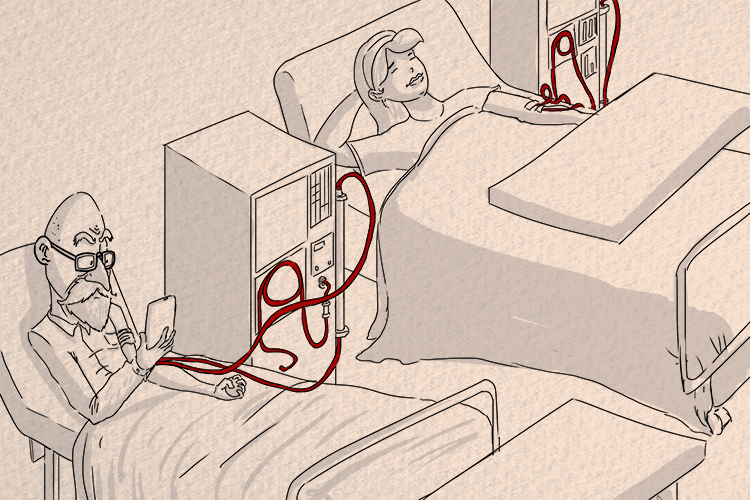Advantages and disadvantages of haemodialysis and peritoneal dialysis
Haemodialysis is done by trained professionals and allows patients to be in contact with others having the same treatment. It also takes less time overall than peritoneal dialysis. However, it restricts lifestyle as patients need to attend a hospital or dialysis centre where the machines are located.

Peritoneal dialysis gives patients more freedom as it can be done at home …

… or in any clean place – including, for many, the workplace. Some patients even do it when they are travelling or while they sleep. You can perform peritoneal dialysis by yourself and it doesn’t require as many food and fluid restrictions as haemodialysis.
However, peritoneal dialysis does increase the risk of peritonitis, an infection of the lining of the abdominal cavity.
Haemodialysis or peritoneal dialysis – who decides?
Whether patients have haemodialysis or peritoneal dialysis is down to personal choice and the patient’s particular medical condition. Peritoneal dialysis is often NOT an option for people who are very obese or who have had abdominal surgery several times.




